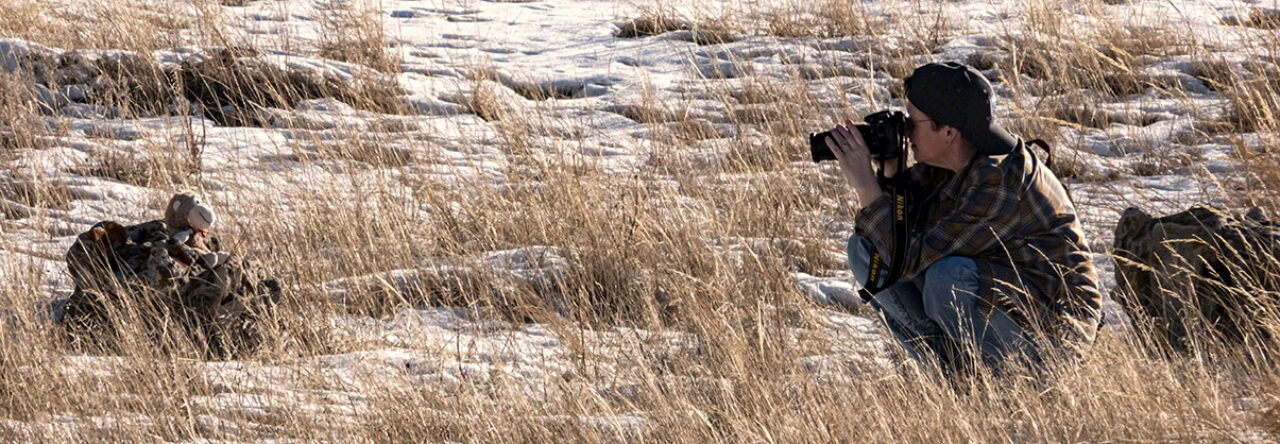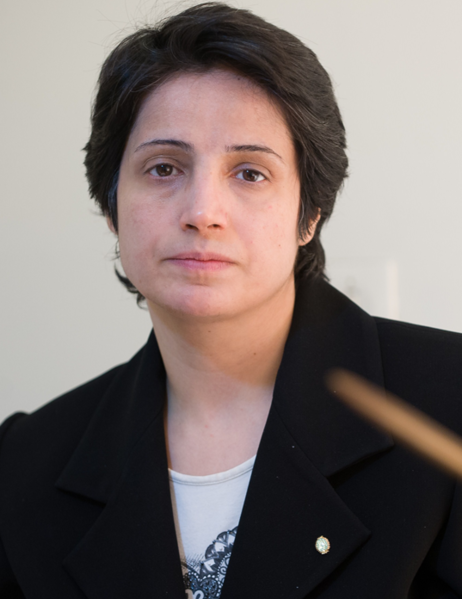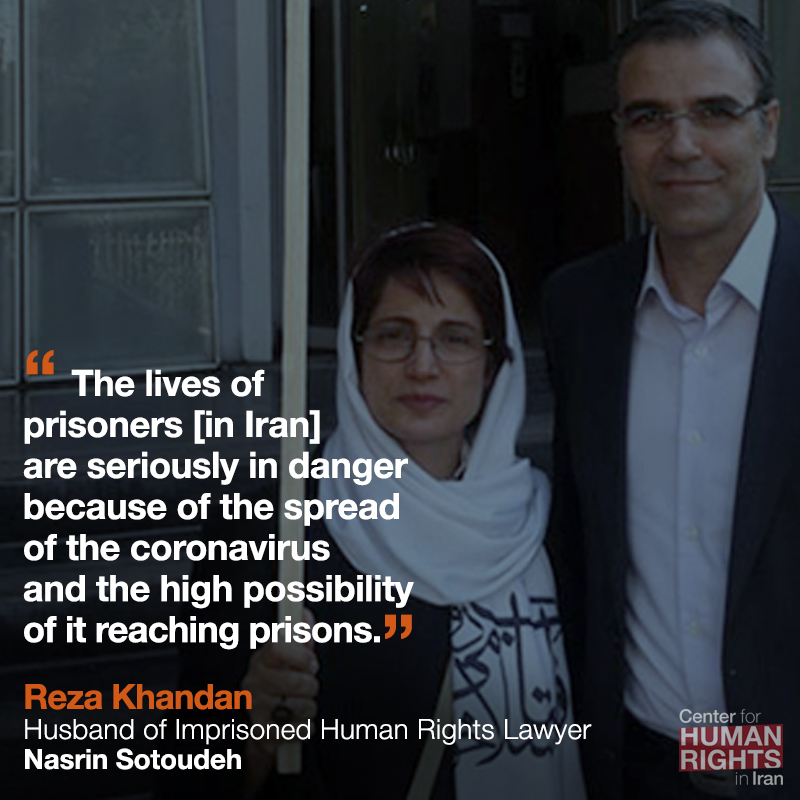She has fought most of her life for equal treatment of women in Iran. Even today, as she remains behind bars for fighting for justice, she is thinking of others and continues to stand for what she believes is right, despite the enormous toll it has taken on her life.
Forty million women in Iran are forced to follow laws put into place which repress and oppress them. Nasrin Sotoudeh is a human rights lawyer and activist fighting to change Iranian law and customs.
She grew up in Tehran, but has been an activist since she was young. She began her career as a journalist for reformist newspapers.
Nasrin is now a prominent human rights lawyer, but, after receiving her master’s degree in International Law and passing the bar exam in 1995, she was not permitted to practice law for eight years. She did not receive her license to practice law until 2003.
With her license secured, she went to work for the Center for the Defense of Human Rights and the Society for the Protection of the Rights of Children.
She defended children held on death row – although it’s illegal under international law to execute those under 18, some 73 children have been put to death in Iran between 2005 and 2015 – and actively campaigned against the death penalty.
Nasrin also was a signatory to the Campaign for One Million Signatures, which called for the elimination of laws discriminating against women, and defended many of its members when they were arrested. She stood up as well for those arrested in a state crackdown after Iran’s disputed 2009 election that brought Mahmoud Ahmadinejad to power (electoral irregularities brought millions of Iranians out in protest).
Nasrin has also received many international awards for her work, including the PEN/Barbara Goldsmith Freedom to Write Award and the prestigious Sakharov Prize for Freedom of Thought.
While the rest of the world recognized her work, she and her family were continually harassed in Iran. When she was arrested in 2008, the government also imposed a travel ban on her then 12-year old daughter.
Her son and daughter were only allowed to visit with her through a glass screen and when Nasrin refused to wear the chādor all future visits were denied.
She was released in 2013. Newly-elected President Hassan Rouhani did so as a sign of good faith, but Nasrin was forbidden to practice law. She told the world, “I was released, but I was not freed.”
She defended a group of women in Tehran in February 2018, when they removed their hijabs in a street protest. The women were arrested for “violating public prudency” and “encouraging immorality of prostitution.” Nasrin saw it as a civil disobedience movement.
Nasrin planned a sit-in to protest a new government rule that would, “restrict the right of dissidents to hire independent lawyers.” She was arrested soon after, on June 13, 2018, for representing opponents of the mandatory hijab law.
A short time later, she heard her family and friends were being harassed and she began a hunger strike on Aug. 26, 2018. She wrote a message that her husband, Reza, shared on his Facebook page. She had no choice but to begin the hunger strike. Reza was arrested on Sept. 4, 2018.
Reza Khandan was taken to the Office of the Prosecutor in Tehran’s Evin prison where he was charged with “spreading propaganda against the system” and “colluding to commit crimes against national security.” He has also been accused of “promoting the practice of appearing in public without a veil” because of his support for the Iranian women’s campaign against forced veiling (hijab).
On Sept. 19, three hundred forty Iranian civil and political activists wrote her an open letter, pleading for her to end her hunger strike.
On Sept. 28, 2018, while still in prison, Nasrin wrote a letter to her then 12-year old son, explained to him why she had to miss his first day of school.
“How could I witness the execution of juveniles in my country and be silent? How could I close my eyes to child abuse cases … to be able to accompany you to school on the start of the new academic year along with your father? I just couldn’t, my son. That was my sin,”
“These days, I think about you more than ever. I think about you and your dear sister Mehraveh and how lonely you are… I shed tears of love so that these cruel times become more bearable for you,”
In March, 2019, Reza wrote on his Facebook page to explain Nasrin was handed a sentence of 38 years in prison and 148 lashes.
According to the Center for Human Rights statement, however, the first case in which Ms. Sotoudeh had been sentenced appeared to relate to a 2015 trial conducted in her absence. Her husband told the center that she had faced at least seven charges in the second case, among them propaganda against the state, disturbing public peace and order, appearing in court without a head scarf, and encouraging corruption and prostitution.
“I don’t know how many years she got for each of the charges because my conversation with Nasrin only lasted a few minutes and we didn’t get to the details,” the center quoted Mr. Khandan as saying. “I only know that the biggest sentence was 12 years,” he said, for the charge of encouraging corruption and prostitution.
Reza was given a six-year sentence in January 2019 for posting updates about his wife on Facebook, but has yet to be called to report to prison. On March 17, 2020, 85,000 prisoners were temporarily released due to concerns over the corona virus.
Nasrin remains in prison and has begun a new hunger strike.
Sotoudeh’s husband, Reza Khandan, who lives in Tehran with their two children, told CHRI that his wife is aware of the dangers of going on hunger strike amid a deadly viral outbreak when Iranian prisons are lacking crucial medicines and sanitary supplies and that she had started the hunger strike only as a “last resort.”
“Nasrin says, ‘If we’re going to die, let us be by our families’ sides, can’t you let us go even under these circumstances?’” he said, quoting his wife.
Nasrim wrote a plea to peace letter this year on International Women’s Day. She describes what daily life is like there and her hopes for the future.
None of the Girls of Enghelab Street, the women who protested Iran’s compulsory hijab law by publicly removing their headscarves and waving them on a stick, are here. But a few of my cellmates are the young women who on International Woman’s Day last year went onto the subway in Tehran, spoke to passengers, and handed out flowers. In another move, this group had supported me by holding up my pictures in the subway. Because of this, they received heavy sentences, which deepens my sense of responsibility.
Iran is a country where violations of women’s rights are systemic. This makes it even more important to honor and commemorate International Women’s Day.
On this day, I am thinking about the years that have passed. The years of our silence and captivity; years of protest, bondage and the walls behind which we are trapped. However, I also am thinking about this year — a year of tragedy and illness for Iranian people. It’s the consequence of hostility and enmity coming back around to us. I keep looking back and reviewing the path we’ve taken. Where did we go wrong? Why didn’t we succeed? Why couldn’t our government govern properly? Why didn’t we know how to resist effectively and peacefully?
I specifically extend my hand to American citizens. Our governments have been rivals for years, with little regards for us. On this day of March 8, I also ask every Iranian around the world to help us in our pursuit of peace, this fundamental aspect of survival.
Nasrin remains in jail. Her crime: defending women and freedom. Nasrin has paid an enormous cost for speaking the trust. It’s time to set her free.



Leave a Reply